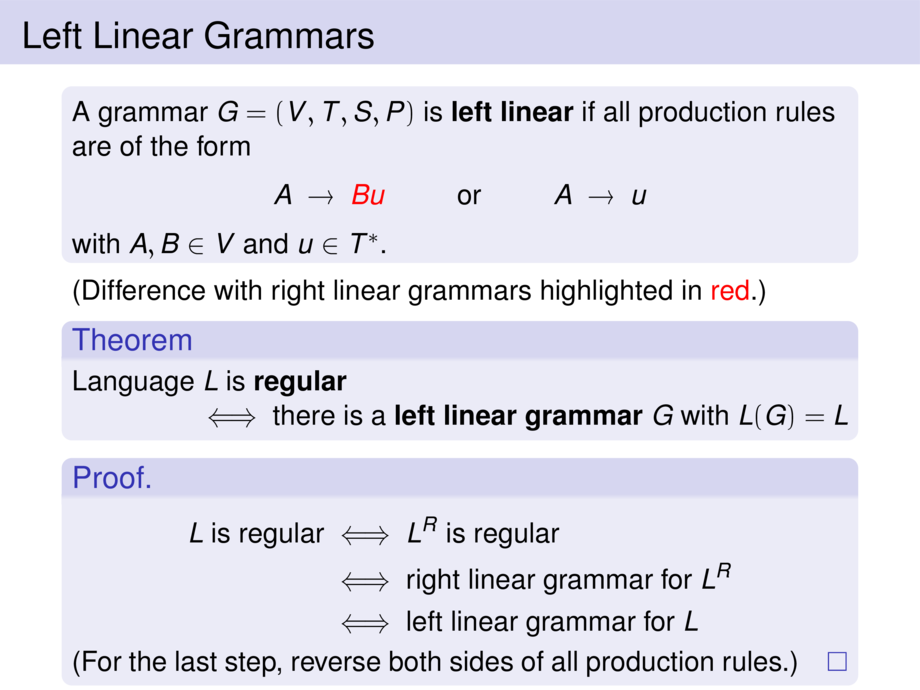



































































































79/80
\begin{frame}{Left Linear Grammars}
\begin{block}{}
A grammar $G=(V,T,S,P)$ is \emph{left linear}
if all production rules are of the form
\begin{talign}
A ~\to~ \alert{Bu}
\hspace*{1cm} \mbox{or} \hspace*{1cm}
A ~\to~ u
\end{talign}
with $A,B \in V$ and $u \in T^*$.
\end{block}
(Difference with right linear grammars highlighted in \alert{red}.)
\pause
\begin{block}{Theorem}
Language $L$ is \emph{regular} \\
\hfill $\iff$ there is a \emph{left linear grammar} $G$ with $L(G)=L$
\end{block}
\pause
\begin{proof}
\begin{malign}
\text{$L$ is regular}
&\iff \text{$L^R$ is regular}\\
&\iff \text{right linear grammar for $L^R$}\\
&\iff \text{left linear grammar for $L$}\\[-2.5ex]
\end{malign}
(For the last step, reverse both sides of all production rules.)
\end{proof}
\end{frame}

